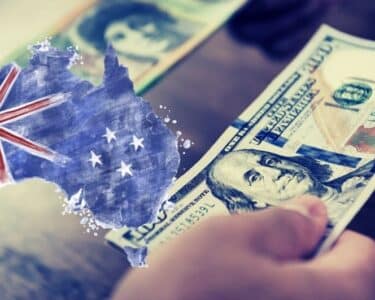Forex trading or foreign exchange trading refers to the conversion of one currency to a different currency. The forex market witnesses the most active trading in the world, with a trading volume as high as $5 trillion.
The forex market is a newborn in comparison to traditional stock markets that date back to centuries. The basic essence of the Forex market is that the conversion between different types of foreign currencies had been there for ages since the nations across the world began minting currencies.
What is the forex market?
The forex market is the forum for trading in different foreign currencies. The exchange of currencies across the world is essential for the conduction for foreign business and trade. A distinct aspect of the forex market is that it does not have a central forum for the currency exchange. On the contrary, trading in currencies takes place over the counter electronically. The electronic forex trading means that every transaction occurs over the computer network among traders all over the world, instead of in one centralized exchange marketplace.
The forex market stays open for five and a half days every week for twenty-four hours. The market supports the worldwide trading of currencies at the significant financial centers of New York, Sydney, Paris, Singapore, Hong Kong, Frankfurt, Zurich, Tokyo, and London. The forex market stays highly active throughout the day, and the price quotes keep varying constantly. However, the forex market of today is a modern invention. After the Bretton Woods Agreement of 1971, a variety of currencies floated freely into the forex market. The constant variation in the values of different currencies led to the establishment of the forex market.
How does the forex market work?
Forex trading in the foreign exchange market occurs directly between the concerned parties in the over-the-counter marketplace. An international network of banks spread across different time-zones govern the trading in the forex market. The following are the different categories of the forex market.
Spot forex market
In this market, the physical exchanging of the currency pairs takes place at the point of time of settling the trade. The spot forex market operates in short time-frames.
Future forex market
In this market, the parties to the currency exchange sign a contract to exchange a fixed amount of currencies at a particular time and date in the future. A future forex market contract is legally binding upon both parties.
Forward forex market
The parties sign a contract for the exchange of a set amount of currencies at a fixed price and on a specific date or range of dates in the future.
What is forex trading?
Forex trading is the selling and buying of foreign currencies at the foreign exchange market. The forex trader predicts the pattern of fluctuation of the currency values to speculate on the right time of buying and selling currencies, for making profits. An interesting feature of forex trading is forex trading leverage. The leverage feature permits the forex trader to execute trading in the forex market with more money than what the trader has in his account.
How does forex trading work?
The fundamental mode of forex trading is the simultaneous buying and selling of currency pairs in the foreign exchange market through forex brokers. You can choose one from the best forex broker. The currency pairs include a quote currency and a base currency. In the forex market, the trading in currencies often yields millions, and so a trader can make booming profits with a nominal bidding price. However, if the trading volume is too large, a small spread can trigger huge losses. The key to successful forex trading is the accurate prediction of market trends and risks.
A few easy ways to deal with forex trading risks:
There will always be market risks, but if you take the few necessary steps, then you can avoid huge losses. Check out the most strategic ways of averting forex trading risks.
- Place a hard stop-loss at every session of trading so that you can get out of the trade if the market conditions become too unfavorable.
- Do not employ excessive forex trading leverage and avoid forex trading when the prices of currencies seem too volatile or erratic.
- Don’t take part in risky trading. It is prudent not to risk beyond 2% in every trade.
- Trade in a higher time-frame to make more profits in the long run.




